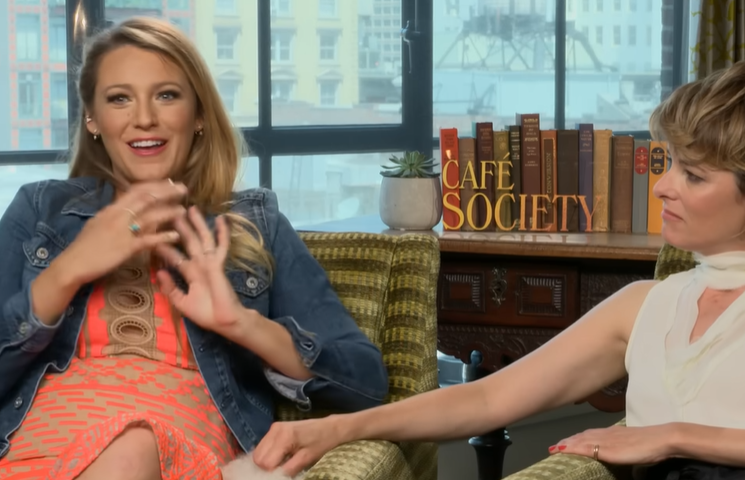One of the most talked-about events in Hollywood in 2012 was the wedding of Blake Lively and Ryan Reynolds at Boone Hall Plantation. At the time, the location seemed perfect, what with all the beautiful oak trees and old-world charm. A long shadow is cast by its history as a place that was built on the exploitation and suffering of enslaved people. The preserved slave quarters at Boone Hall Plantation serve as a sobering reminder of the plantation’s troubled history. There was a tendency to romanticize plantation weddings on sites like Pinterest at the time, despite the fact that they had significant historical significance.
In an interview with Fast Company in 2020, Ryan Reynolds made their decision public. The decision was a “giant mistake” that he deeply regretted, he said. Reynolds elaborated that the couple had had an idealized impression of the location based on Pinterest wedding photos. Giving $200,000 to the NAACP Legal Defense Fund, the couple dealt with the backlash. Their public quest toward accountability reached a turning point with the apology. The controversy follows them and is a cultural talking point even though they sincerely regret it.

| Attribute | Details |
|---|---|
| Full Name | Blake Ellender Lively |
| Date of Birth | August 25, 1987 |
| Place of Birth | Los Angeles, California, USA |
| Profession | Actress, Entrepreneur |
| Spouse | Ryan Reynolds (m. 2012) |
| Wedding Venue | Boone Hall Plantation, South Carolina |
| Date of Wedding | September 9, 2012 |
| Public Apology Date | August 2020 |
| Notable Films | Gossip Girl, The Age of Adaline |
| Instagram Handle | @blakelively |
[Reference: NBC News]
After Reynolds openly backed Black Panther in 2018, the criticism intensified. His critics pointed out the inconsistency between his support for a Black empowerment film and the venue’s history of hosting his wedding. The conversation became a broader condemnation of plantation weddings as it was amplified on social media. Once sites like Pinterest and The Knot realized the damage that could come from romanticizing plantation weddings, they banned the content. Rising public consciousness regarding systemic racism and the need to take responsibility for past actions prompted this change in policy.
The now-defunct lifestyle website that Blake Lively ran, Preserve, was another target of separate criticism. A 2014 editorial spread honoring Southern Belle imagery was featured on the site, titled The Allure of Antebellum. There was a lot of pushback because the spread didn’t mention the crimes committed during the Antebellum period. The website’s failure to accomplish its goal was something that Lively later acknowledged in an interview with Vogue. She conceded that it had no real effect. Intertwined with the Preserve controversy, the plantation wedding serves as a reminder of the cultural biases that can arise from the influence of celebrities.
The wedding industry contributed to the perpetuation of plantation venues’ romanticism. Plantations have long been advertised as idyllic venues for nuptials. No mention of the enslaved lives that built and maintained those estates was made in the brochures or social media posts, which showcased grand oaks and vintage charm. Lively and Reynolds’ detractors brought this larger problem to light. A turning point in the public’s perception of plantations and their marketing came with their public apology.
Reynolds and Lively did more than just apologize after the scandal broke. In a separate ceremony held in the privacy of their home, they renewed their vows. Reynolds said it was a turning point in their lives that helped them reconcile their principles with their behavior. They opted for change rather than paralysis, he conceded, because shame can do either. From that point on, the couple has been outspoken in their support of social justice causes, particularly those that seek to increase equity by giving a voice to the voiceless.
Questions of responsibility and development in prominent figures are also brought up by their wedding story. The public tends to pay more attention to the mistakes of famous people because of the clout they have. On the other hand, they provided examples in their replies. A maturity level seldom observed in celebrity apologies is demonstrated by Reynolds and Lively’s decision to confront their error directly instead of skirting the issue. Their continued support and generosity show that they are eager to grow and change. Still, the story of their wedding serves as a warning against cultural insensitivity and its repercussions.
Traditional views of plantation weddings have evolved. One factor that altered public opinion was the reaction to Lively and Reynolds. Plantations as wedding venues are now shown with much more caution on wedding platforms. The way these areas are framed is also a point of contention for wedding photographers and planners. In conversations regarding cultural representation and ethical responsibility in event planning, the couple’s story has emerged as a crucial point of reference.
The controversy has had little to no impact on Blake Lively’s career, which includes successful films such as Gossip Girl and The Age of Adaline. Still, this gaffe has permanently stained her reputation. Striking a balance between introspection and public responsibility is an ongoing challenge for both her and Reynolds. Celebrities can learn from their story and approach mistakes head-on, without getting defensive or resorting to performative gestures. Acts, not empty rhetoric, continue to be the focal point.
Their wedding has ignited a cultural dialogue that highlights a larger social need to face the past. Plantations are more than just pretty places; they stand as symbols of structural injustice and human misery. There has been a positive shift, as the discomfort surrounding plantation weddings is growing. Accountability and historical cognizance are paramount in an ever-changing society. Beyond the wedding venue, Blake Lively and Ryan Reynolds’ story is about learning from the past, taking responsibility of one’s actions, and making a conscious decision to improve.
